Sleep Apnea Treatment Springfield
Sleep Deeply & Feel Like Yourself Again
Over 20 million Americans struggle with sleep apnea each night, and that number is probably low because roughly 80-90% of cases are undiagnosed. Do you feel exhausted all the time no matter how much you sleep? Have memory problems or persistent “brain fog”? Been told you snore loudly? All of these are telltale symptoms of a serious disorder called sleep apnea, but Dr. Gramse can offer a solution that is simple, proven, and will be custom-made for you. With sleep apnea treatment in Springfield, you can finally start getting the rest you deserve.
Why Choose Dr. Laura Gramse Family Dental Care for Sleep Apnea Treatment?
- Sleep Dentist with 25+ Years of Experience
- Dental Office Locations in Springfield & Palmer
- Convenient At-Home Sleep Testing
The Dangers of Sleep Apnea
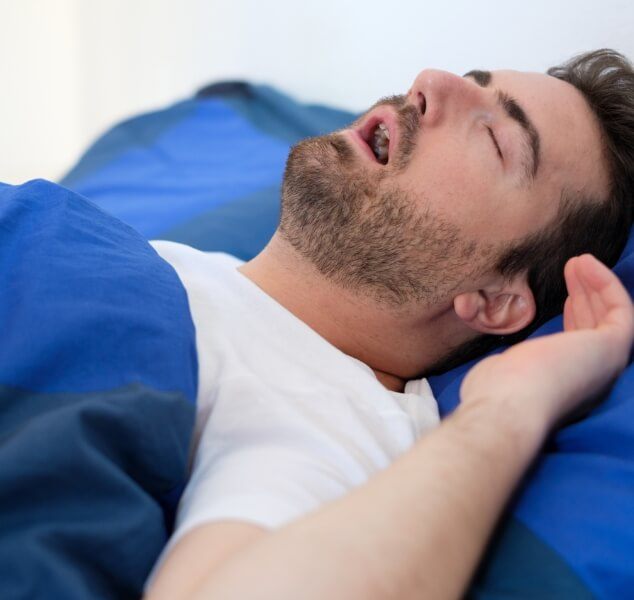
People with sleep apnea stop breathing for short periods of time repeatedly throughout the night (up to 100+ times in severe cases). These interruptions not only prevent someone from reaching the deeper, more restorative stages of sleep that make them feel rested, but they also spike someone’s blood pressure and can lead to hypertension, a primary risk factor for heart attacks and stroke. Plus, research has repeatedly shown that “drowsy driving” is actually more dangerous than driving while intoxicated.
Common Sleep Apnea Symptoms
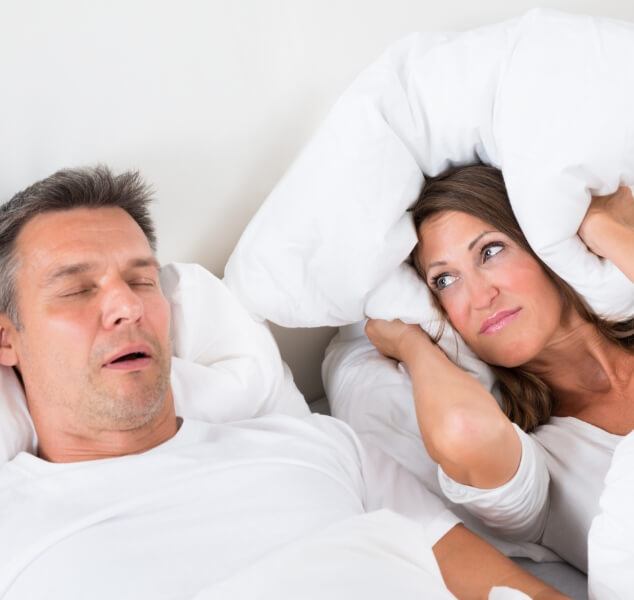
- Chronic tiredness despite sleeping seven to nine hours each night
- Loud snoring every single night
- Headaches/sore throats in the morning
- Waking up gasping for breath or sweating
- Frequent urination throughout the night
- Memory issues or “brain fog”
- Feelings of depression/anxiety
- Accelerated weight gain/trouble losing weight
- Sexual dysfunction
At-Home Sleep Testing
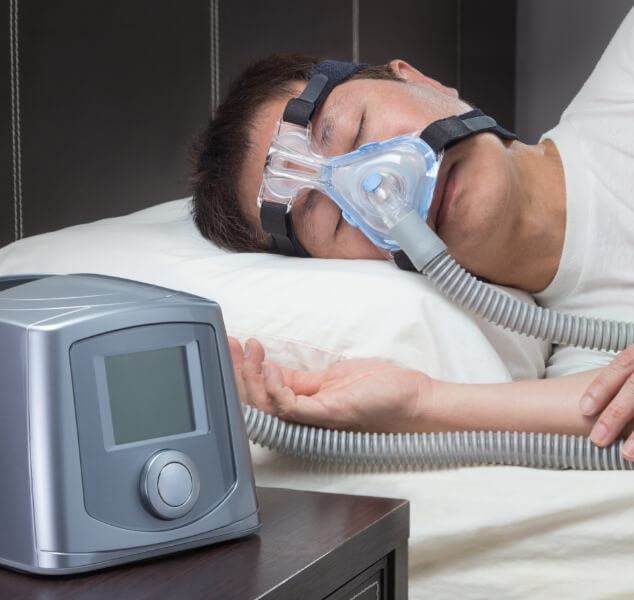
Before anyone can receive treatment for sleep apnea, they need to be officially diagnosed first. In the past, a patient would have to spend a night in a lab hooked up to various machines—not the most restful environment you can imagine! But now, people can accomplish this important step in the comfort of home. We simply give a patient a small device to wear to bed one night, and this records all kinds of data that will then be evaluated by a licensed sleep physician.
Sleep Apnea Treatment Options
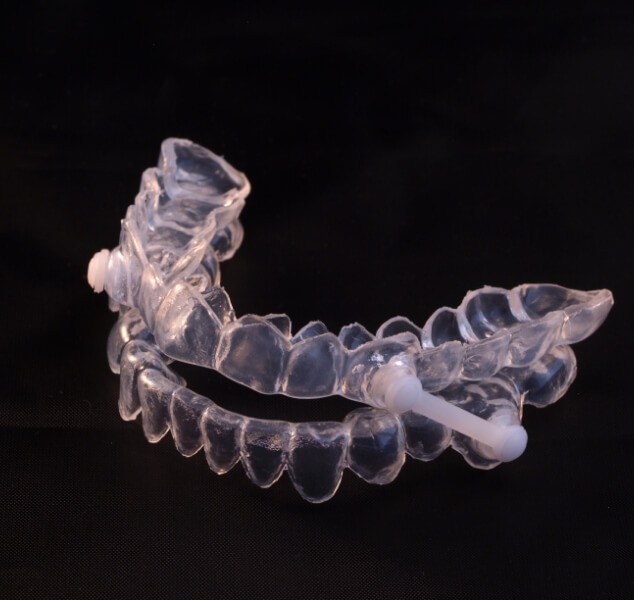
While the harms of sleep apnea are quite scary, the condition is relatively easy to treat. The most popular option is CPAP therapy, in which a patient wears a mask to bed that is attached to an air pump. This creates a steady flow of oxygen into the throat so that someone is able to breathe normally while they sleep.
However, many patients don’t like using a CPAP machine because they are uncomfortable—about 50% of those prescribed one stop within the first year. However, Dr. Gramse can offer a more comfortable alternative in the form of oral appliance therapy. All a patient has to do is wear a small, custom mouthpiece to bed. This shifts the lower jaw slightly forward, which keeps the airway open. It’s simple, quiet, and much easier to travel with compared to a CPAP, making it easier for patients to enjoy the benefits of consistent treatment night after night.
Understanding the Cost of Sleep Apnea Treatment
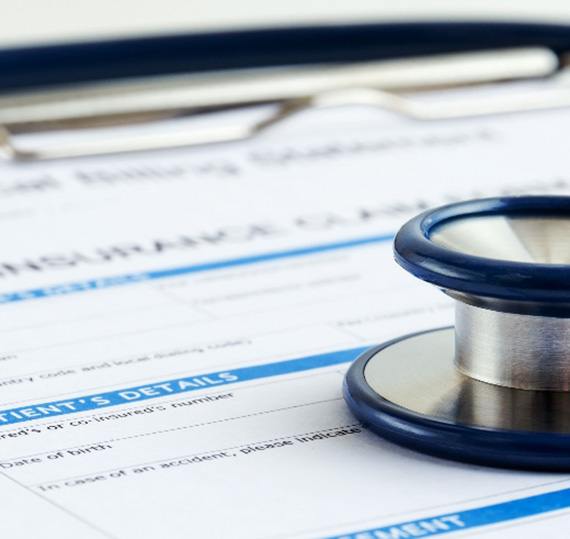
When you visit your dentist for sleep apnea treatment, one of your top concerns is likely to be how much you’ll need to pay for your care. The final cost won’t be exactly the same for every patient, but rest assured that you won’t need to make any decisions before our team has provided you with an estimate. Below is a brief look at what you need to know when it comes to the financial aspect of your sleep apnea treatment.
Does Dental Insurance Cover the Cost of Sleep Apnea Treatment?

Sleep apnea is seen as a medical issue that is only indirectly linked to oral health. For this reason, even if you see a dentist for your sleep-disordered breathing, your dental insurance likely won’t provide any coverage for your care. That said, there’s a good chance that your regular medical insurance will help pay for the diagnosis and treatment of sleep apnea.
Factors That Affect the Cost of Sleep Apnea Treatment
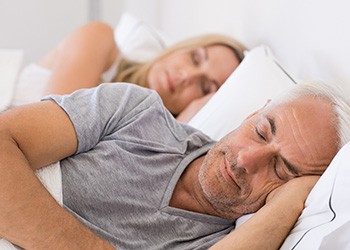
There are multiple factors that need to be taken into account when determining the final cost of sleep apnea treatment. For one thing, you will need to make room in your budget for a sleep test so that your sleep disorder can be diagnosed. Without an accurate diagnosis, you won’t be able to pursue sleep apnea treatment at all.
On top of that, the type of treatment you choose will affect the amount you end up paying. A customized oral appliance will not have the same price tag as a CPAP machine. Bear in mind that an oral appliance is usually the less costly option in the long run due to requiring less maintenance and not having any parts that need to be periodically replaced.
Treat Your Sleep Apnea Now to Improve Your Health
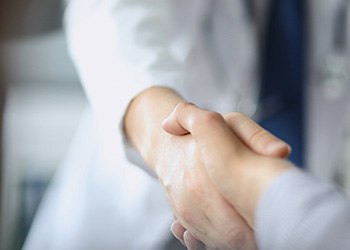
While you may be concerned about the initial cost of sleep apnea treatment, it’s important to bear in mind that it could end up saving you money in the long term. When left untreated, sleep apnea can potentially increase your risk for heart disease, diabetes, and other health problems that could be expensive to treat. Additionally, if sleep apnea makes you feel drowsy during the day, you could be more likely to get into an accident while driving, which could result in costly vehicle repair and medical bills.
In short, having sleep apnea treated now could help you avoid even more serious problems later on, which is ultimately better for your bank account as well as your overall quality of life. As such, if you have any reason to suspect that you have developed sleep apnea, it is in your best interest to seek care from a professional as promptly as possible.
Sleep Apnea FAQs
Why Should I See a Dentist for Sleep Apnea Treatment?
At first, the connection between sleep apnea and dentistry may not seem so clear. However, your dentist is an expert in the upper respiratory area. With OSA, tissues from the mouth and neck can prevent healthy breathing, and dentists are able to reposition the lower jaw to keep these tissues out of the airway. You meet with your dentist regularly, so you already have a built-in appointment where you can bring this up.
Does Everyone Who Snores Have Sleep Apnea?
No, not everyone who snores has sleep apnea and not everyone who has sleep apnea snores. To determine if you have sleep apnea, you need to undergo a sleep study or sleep test. This is how you receive a diagnosis. Sleep apnea affects approximately 20 million people in the United States. This is about 20% of the adult population!
How Long Are Sleep Apnea Events or Episodes?
Sleep apnea events and episodes can last 10 seconds or longer. They can occur anywhere from 5 to 30 times per hour. A sleep test will reveal how advanced your case is, how many episodes you are experiencing, and what type of sleep apnea you have. Having 0 to 15 episodes is considered mild while 30 times or more is severe.
Will Oral Appliance Therapy Make CPAP Therapy Unnecessary?
CPAP treatment works by physically forcing air through the airways with a mask worn throughout the night. Only about 50% of people who are prescribed CPAP treatment actually use it. In some cases, oral appliance therapy can completely replace CPAP treatment. However, if you have severe sleep apnea, oral appliance therapy may not work effectively alone. A customized treatment plan can be made to best meet your unique needs.
Will My Sleep Apnea Go Away If I Lose Weight?
Maybe – being overweight is a major risk factor for obstructive sleep apnea. Excess weight and tissue can block the airway. Losing weight can reduce the tissue in the airway. However, it is possible that you could continue to have sleep apnea even after achieving your ideal weight. You would need to do another sleep test to determine if you still have sleep apnea.



